Antiperspirant: what is it, how to choose and use it correctly?
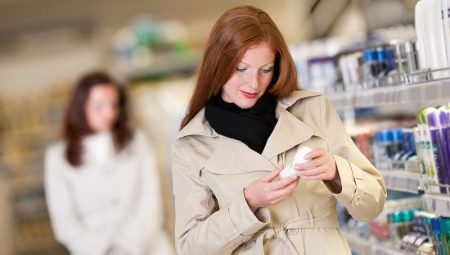
Antiperspirant is actively advertised as the best "protector" against sweat and it is difficult to find someone who would never use it. However, not everyone understands what the action of this cosmetic product is based on, and what ingredients are included in its composition. It is also important to know how to use antiperspirant correctly, how it differs from deodorant and how to choose the right product from the huge variety of products on the market. In this article you will find answers to these and other questions.
What it is?
The word "antiperspirant" consists of two parts: "anti", which means "against" and "perspiration", which translates from English as "sweating." Really, antiperspirant helps to get rid of sweat and does it very effectively by preventing the process of sweating itself. This is due to the fact that it clogs the ducts of the sweat glands, blocking the exit of fluid to the external environment... Accordingly, the armpits remain dry and the characteristic "aroma" does not emanate from them.
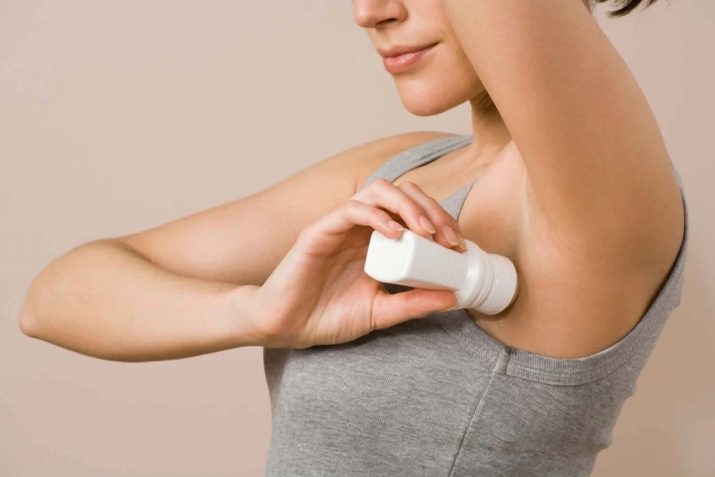
It should be noted that it is not the sweat itself that smells, but bacteria that begin to multiply in a humid environment favorable for this. Thus, antiperspirant, eliminating moisture in the armpit area, eliminates the cause of the unpleasant odor. An additional plus - clothes do not have to be cleaned of yellow unaesthetic stains.
However, not everything is so rosy. For an antiperspirant to do its job of reducing sweating well, it must be formulated with ingredients that are powerful, but not healthful for the body.
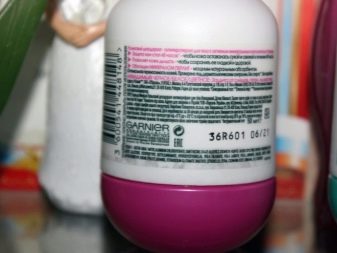
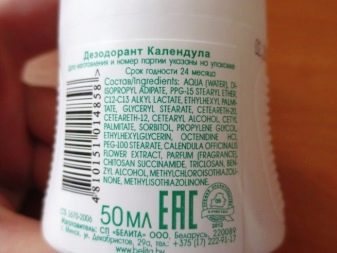
The main component of most antiperspirants is aluminum salts (hydrochloride). It is they who narrow the craters of the sweat glands, reducing the amount of fluid they produce. Some manufacturers are replacing aluminum compounds with safer metal - zirconium, however, it is more expensive and inferior to its counterpart in efficiency. There are antiperspirants that use a combination of zinc and aluminum in varying proportions.
The substances farnesol and triclosan are responsible for the destruction of the smell of sweat. They eliminate bacteria, which, as we have already found out, are its source. But if the action of farnesol is directed only to "harmful" microorganisms, then triclosan is aggressive towards the native microflora, destroying its useful "inhabitants". That's why it is desirable that there is no second substance in the antiperspirant, especially when it comes to a pregnant woman or the owner of sensitive skin.
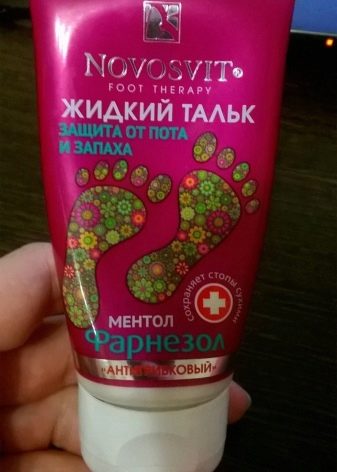
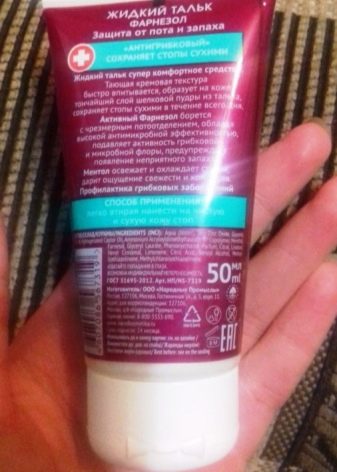
Another important ingredient in almost any sweat-reducing agent is it is cyclomethicone. It creates a dense silicone-like film on the surface of the glands, which seals their holes.
Antiperspirants may contain various alcoholseg butanol (butyl), which has a drying effect. But if you have a tendency to irritation and allergies, then give preference to alcohol-free products containing various plant extracts and lecithin - they care for the skin, soften and moisturize it.
How old can you use it?
There is no specific age limit for antiperspirant use. Until adolescence, it does not make sense to use it - children, as a rule, do not have a pronounced smell of sweat. But if the child has excessive sweating (hyperhidrosis), which is accompanied by an unpleasant odor, the use of an antiperspirant is justified. However, first you need to find out the cause of the disease by visiting an endocrinologist and passing all the necessary tests. Based on their results, the doctor will prescribe treatment and recommend a suitable and, most likely, a pharmacy drug.
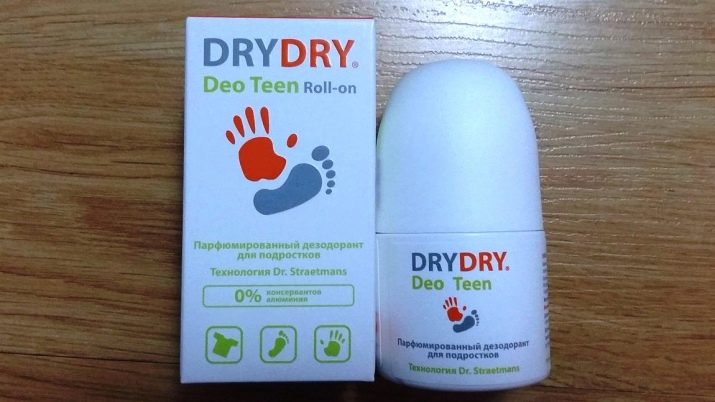
For children with normal sweating, antiperspirants can be used from puberty. But the product should consist of mostly natural and gentle ingredients. Their use should be combined with the observance of hygiene rules - regular washing, daily change of underwear and wearing clean clothes.
Comparison with deodorant
An alternative antiperspirant antiperspirant is deodorant. True, the principle of its action is somewhat different. Let's see how it differs from its competitor and which of these two "fighters" with sweat is more effective.
- They have different tasks. Antiperspirant radically solves the problem of sweat - it inhibits the work of the glands that secrete it. By shrinking their ducts, it reduces sweating and keeps the armpits and other areas dry.
Deodorant has a milder effect - it only destroys bacteria that multiply in a humid environment. And since they are the cause of the unpleasant odor, you will definitely not "smell", however, moisture from the body will not stop escaping. This means that you will not get rid of wet armpits (and inevitable marks on clothes) with the help of deodorant, only neutralize their smell.
- The exposure time of one and the other means is proportional to the scale of the tasks that they solve. The deodorant works for a maximum of 5 hours, so you need to use it several times during the day to avoid the smell of sweat. The antiperspirant provides protection for a longer period - from 24 to 72 hours, pharmaceutical preparations can act for up to 7 days.
- Since antiperspirant is more potent, it has significant side effects. By blocking the ducts, it disrupts the process of thermoregulation and prevents excess fluid and toxic substances from leaving the body.The consequences of water retention can be overheating of the body and severe swelling. Therefore, it is impossible to constantly use an antiperspirant - a maximum of 2 or 3 times a week. For the gym, accordingly, it is also not suitable - during workouts it is better to use deodorant.
- We have already described the main active ingredients of the antiperspirant: these are salts of aluminum, zinc and other metals. They reliably protect against perspiration. The main components of a deodorant are antibacterial substances, as a rule, triclosan and farnesol (they are also present in an antiperspirant, but at a lower dose). You can buy a product based on natural ingredients that have an antibacterial effect, for example, with essential oils. Most deodorants also come with perfumed fragrances.
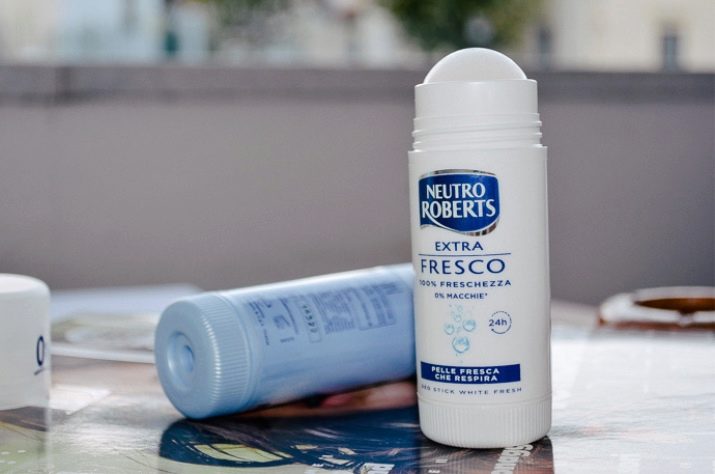
Which of these two means to choose? If you are not sweating very much, then you should opt for deodorant as a milder remedy. And if sweat is "pouring from you", but at the same time does not have a strong odor, then only an antiperspirant can cope with this problem. If profuse sweating is accompanied by an aroma that is unbearable for the sense of smell of people around, then antiperspirant deodorants are best suited for such cases, which combine 2 functions: reducing the process of sweating and eliminating unpleasant odor.
What happens?
The same antiperspirant is usually available in several forms so that each customer can choose the option that suits them best.
The following types of antiperspirants can be distinguished.
- Roller (with a roll-on applicator) - it is in greatest demand among consumers, as it is very compact, effectively removes sweat, having a wide coverage area, and is easy to use.
However, after contact with the skin, you must wait until it dries completely so as not to stain your clothes.
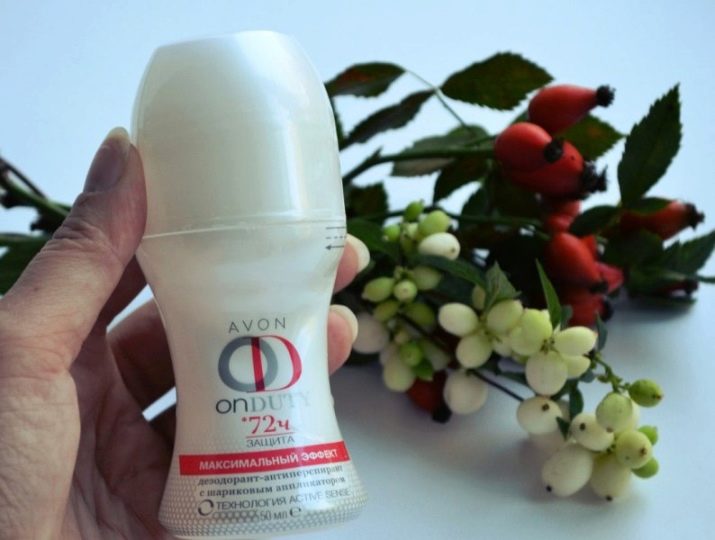
- Solid (stick or pencil) - the appearance and principle of application are similar to the previous look, but the stick is a less economical option, since the product lies on the skin in a very dense layer. And if it is with talcum powder, then there is a risk of getting unattractive stains on clothes, so it must be applied half an hour before leaving the house. All this does not prevent the stick from being one of the most popular antiperspirant options, since it forms a dense film on the skin that provides reliable protection from sweat.
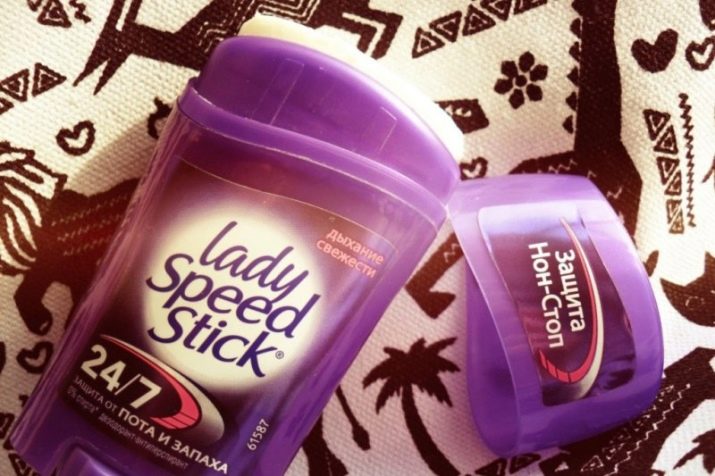
- Spray or aerosol - the main advantage is the speed of absorption. It dries immediately after application, leaving no residue on clothing. Another advantage of the spray over previous types of antiperspirants is that several people can use it without the risk of irritation or even infection of the skin from foreign microbes getting on it.
But in terms of efficiency, it is inferior to rollers and sticks - due to its gaseous nature, a large consumption of funds is required.
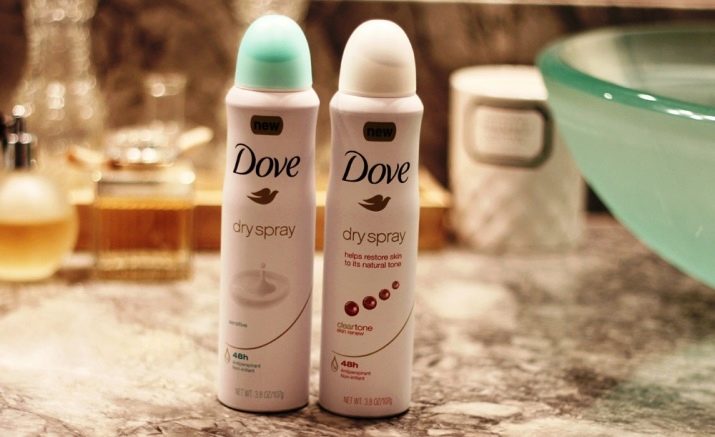
- Gel and cream - not only protect from sweat, but also take care of the body. The content of natural ingredients in them is higher than in other forms, therefore they are most preferable for sensitive thin skin. However, it takes about 30 minutes to fully absorb.
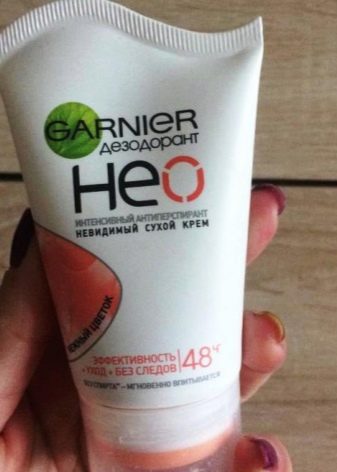
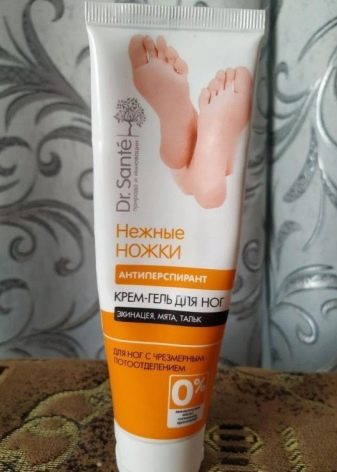
- Talc (or powder) with the addition of aluminum salts - they absorb moisture, drying out the areas in which you sweat, and therefore are contraindicated for dry skin.
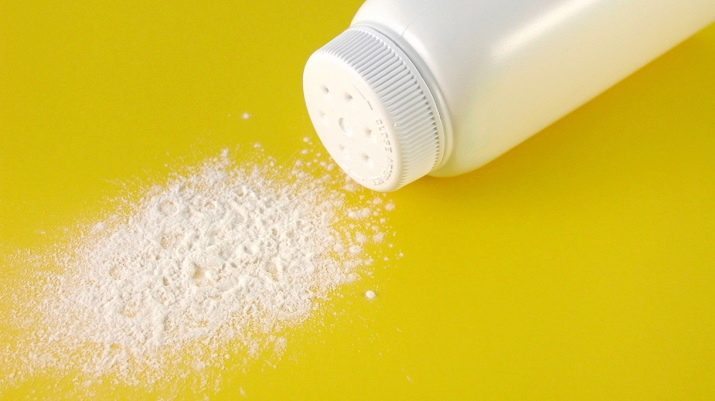
- Antiperspirant wipes and liners Are disposable antiperspirants. They are not very suitable for constant use, but in emergency cases or at various events, when it is necessary to ensure dry armpits for several hours (most often from 5 to 10). The napkins saturate the skin, preventing the appearance of moisture in the most sweaty areas. And the stickers are attached to the body or clothing, additionally protecting it from stains.
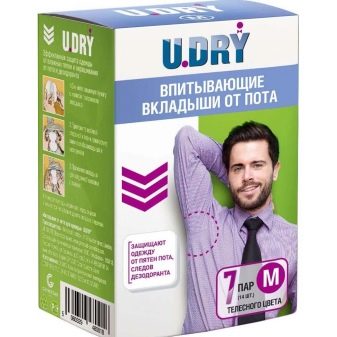
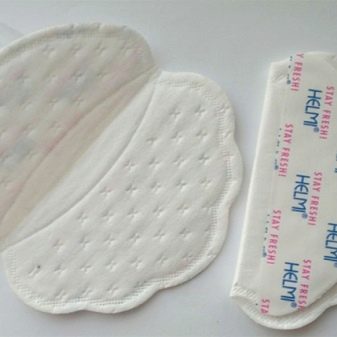
If you sweat too much (hyperhidrosis), standard remedies are unlikely to help you. In this case, you need to consult a dermatologist who will prescribe treatment and special pharmaceutical preparations.Due to the very high concentration of active substances, medical antiperspirants better cope with increased sweating and at the same time provide protection for a longer period (up to a week).
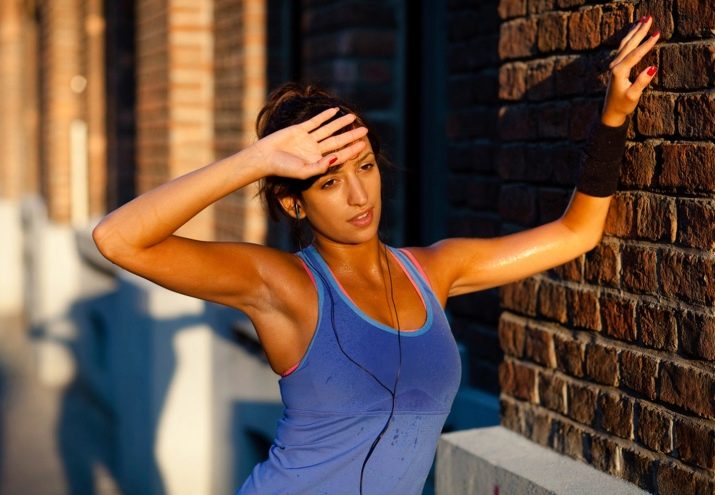
However, they cannot be used too often and for a long time - this can lead not only to strong inflammatory and purulent processes, but also to the loss of their function by the sweat glands. Usually, pharmaceutical preparations are used in courses.
Some antiperspirants (for example, the Korean remedy No sweat, No stress) can be used not only for the armpit area, but also for the hands (palms area), feet, head and other areas, which is especially important for hyperhidrosis.
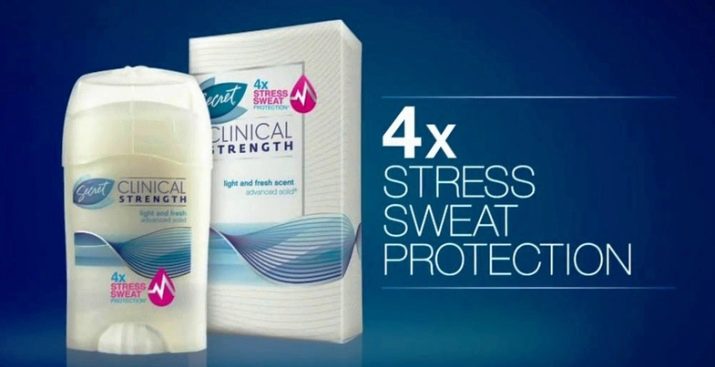
Possible problems
There was no official statement from doctors that antiperspirants are hazardous to health. Only those products that have successfully passed all the necessary tests enter the market. However, research continues today to study the effects of this cosmetic product and its individual ingredients on the human body. And they give cause for concern.
The main concern of scientists is caused by metal salts, especially aluminum hydrochloride, which is found in most antiperspirants in the budget segment.... Oncologists believe that metal compounds can cause malignant tumors, especially breast cancer in women. But there is no unequivocal confirmation of this fact. Also, high concentrations of aluminum can lead to senile dementia, depression and cardiovascular disease.
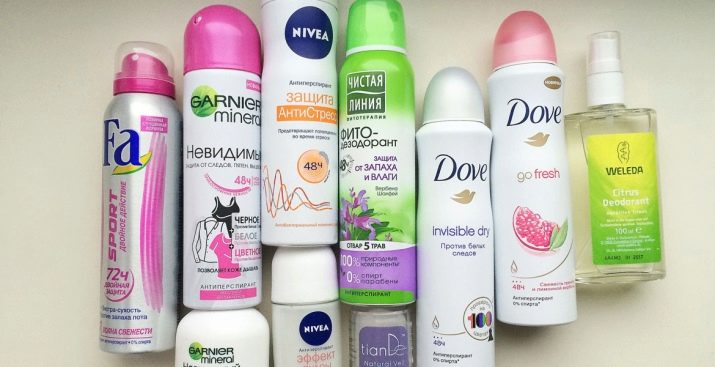
Parabens - artificial preservatives - can also be found in antiperspirants. As an estrogen substitute, they significantly increase the risk of cancer.
Triclosan - "destroyer" of microbes - is harmful to people with skin problems, provokes dermatitis. Also, this antibacterial component "hits" the thyroid gland and can cause a malfunction of the entire hormonal system.
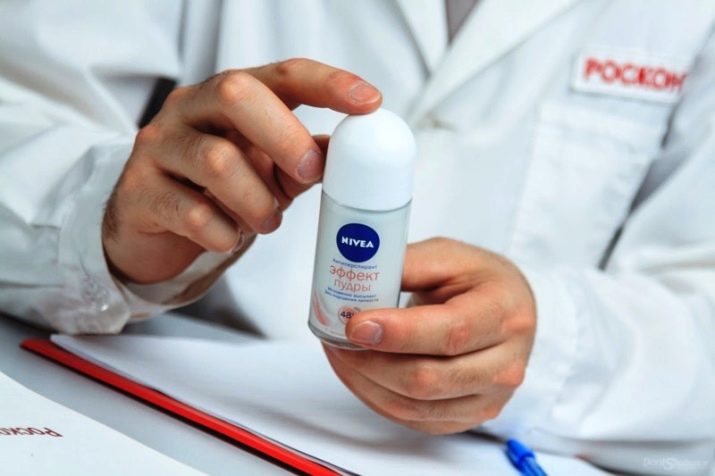
Some antiperspirants contain propylene glycogel, which acts as a moisturizer. But the list of its possible side effects is impressive: from banal irritation and various skin diseases to disorders of the nervous system, gastrointestinal disorders and malfunctions of the liver and kidneys.
Talc is not dangerous in itself, but in combination with asbestos it turns into a carcinogen (and the presence of asbestos fibers in the composition is not always indicated).
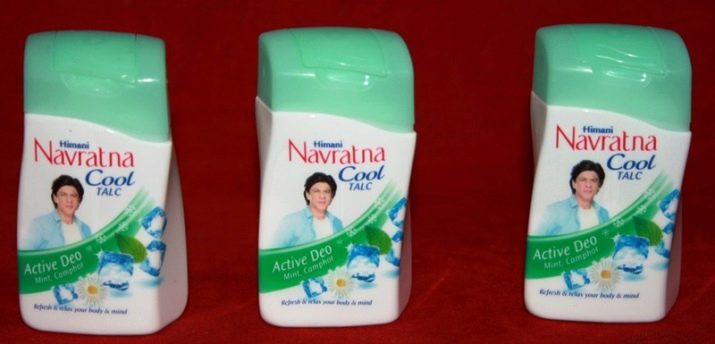
This does not mean that you need to stop using antiperspirants. Just do not abuse their use and give preference to products with a safer and more natural composition.
It is not recommended for pregnant and lactating women to use antiperspirants: the chemicals in their composition can have a negative effect on the formation of the fetus, the health of the mother and the quality of breast milk. You can replace industrial sweat blockers with natural ones: baking soda, lemon juice, or essential oils (such as tea tree oil).

How to choose?
The abundance of antiperspirants on the modern market raises a natural question: which product and which brand should you give preference to?
When choosing an antiperspirant, you can be guided by the following criteria.
- The product should match your skin type. Owners of sensitive skin prone to irritation should choose products with a large amount of natural ingredients. Those with dry skin should avoid alcohol in the product - it will dry it out even more and can cause flaking and itching.
- The question of price is very important for many. However, remember that by purchasing too cheap products, especially from little-known manufacturers, you risk your health - they have more aggressive and fewer useful ingredients.
- If you have hyperhidrosis, then the decision on the choice of a suitable antiperspirant drug is best left to a dermatologist.
- Perfumed products are contraindicated in people.who are prone to allergies.
- You can give preference to the brandwhom you trust. But remember that the "hype" of a brand does not equal the usefulness and safety of its products. This is especially true for popular brands in the mass market segment.
- Reviews and recommendations of friends can also help in choosing... However, the body of each person is individual and what suits one can harm another. Therefore, focus on people with similar skin characteristics and health conditions.
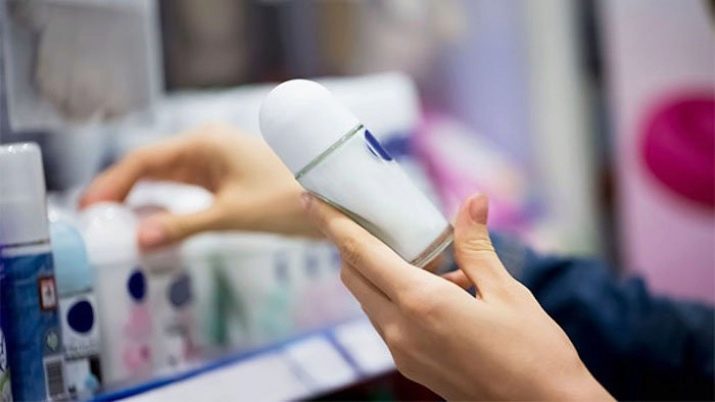
Top manufacturers
Introducing 5 effective and gentle antiperspirants from the most popular brands.
- The rating is topped by Rexona "Tender and Juicy" - the tool will allow you to forget about sweat for 48 hours. The composition is free of alcohol and parabens and contains vitamin E, which nourishes and gently cares for your skin.
Lovers of fruity and floral aromas will especially like it.
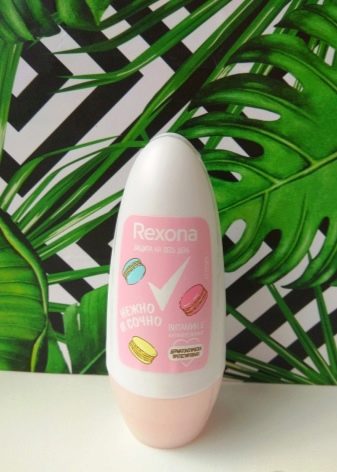
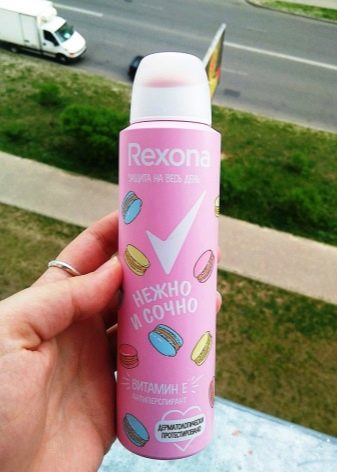
- Garnier Heo Antiperspirant Deodorant "Delicate Flower" Available as a spray and dry cream, it guarantees 100% protection against sweat, odor and stains. The natural mineral perlite acts as an absorbent. And panthenol makes the skin soft and prevents irritation.
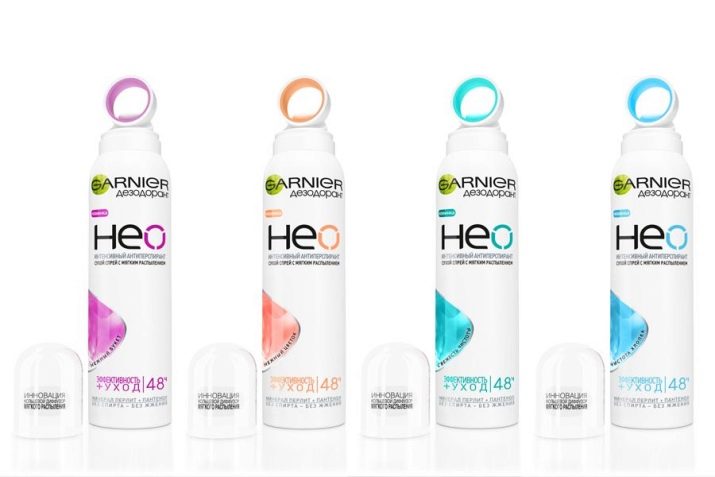
- Antiperspirant Armelle with silver ions combines reliable protection against sweat and odor with a gentle attitude to the skin. The antiperspirant does not contain alcohol, perfumery fragrances or carcinogenic substances. But it is full of natural ingredients - extracts of chamomile, calendula and sage.
Thanks to its mild formula, it is suitable for sensitive skin and even relieves inflammation.
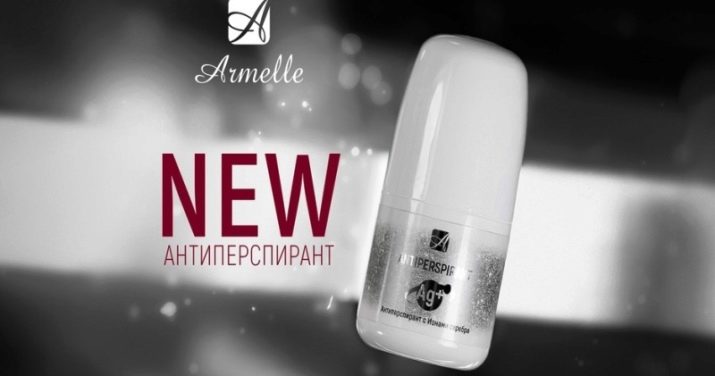
- Antiperspirant Corbaktol from the German manufacturer Gelinghem - effective sweat blocker, contains plant extracts, as well as panthenol and allantoin, which soothe and soften the skin. Available as a spray only.
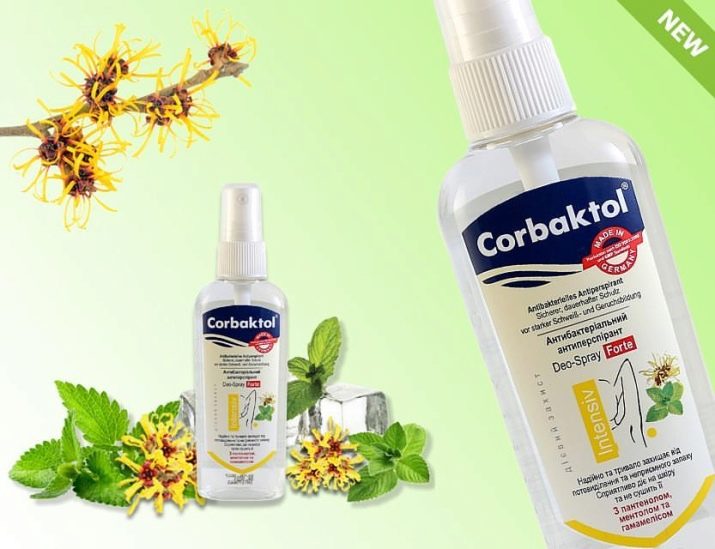
- Antiperspirant deodorant Sophisticated by L'Etoile attracts attention with bright packaging and juicy fruit aromas (apple, raspberry or banana - to choose from). Copes with sweat and odor. It contains harmful triclosan, but the composition also contains natural ingredients - extracts of oak and horse chestnut, which protect the sensitive area of the armpits from irritation.
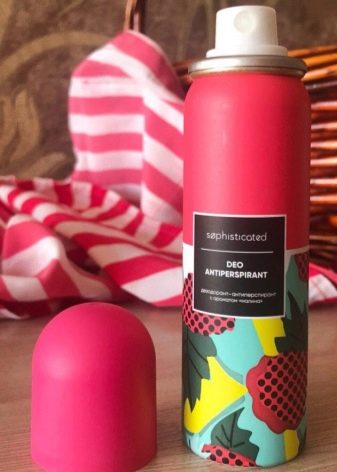
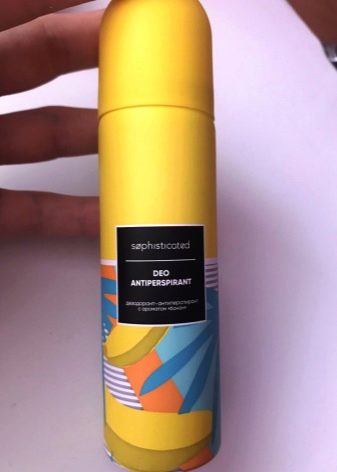
How to apply correctly?
To ensure that your antiperspirant offers maximum protection against sweat without harming your body, there are a few rules to follow.
- The product is applied only to clean and dry skin. Before using an antiperspirant, it is advisable to take a shower or at least wash your armpits and then wipe them dry. Treating wet areas will not make any sense, since the active ingredients cannot penetrate through the water layer to the sweat glands to block them.
- Many people apply antiperspirant in the morning before leaving the house. It is not right. Experts advise using it in the evening so that the active ingredients can be completely absorbed overnight and form a protective layer that prevents sweat from reaching the surface. Even a morning shower is incapable of destroying it.
- Antiperspirant action lasts at least 24 hours, therefore, it is applied only once a day, so as not to sweat all day.
- After hair removal, 48 hours should elapsebefore you can apply the antiperspirant. But if in the process of shaving you damaged your skin, then you need to wait for the healing of the wounds so that aluminum salts do not penetrate into the blood through the cuts.
- It is impossible for the antiperspirant agent to come into contact with the inflamed surface., otherwise the irritation will only intensify. Wait until the redness subsides, the burning sensation stops, and only then use the drug. Bepanten or baby cream will help soothe irritated skin.
- Do not apply generously. - a thin layer is enough to block the sweat glands.
- The aerosol should be sprayed at a distance of at least 15 cm. Remember to shake the can before use.
- Be sure to check the expiration date of the product, protecting from sweat. If it has expired, then you will not only not get the desired result, but also harm your skin.Give preference to products with a short shelf life - they contain fewer chemicals and more natural ingredients, which means they will be much healthier for your body.
- Remember to wash off the product at the end of the day.
- Do not use antiperspirant while playing sports, also do not apply it if you plan to go to the bathhouse or sauna. The tool will prevent the outflow of water from the body, which will lead to an increase in body temperature and other negative consequences.
- It is not recommended to apply antiperspirant before sunbathing or going to the beach - you run the risk of getting age spots.
- Do not use other people's antiperspirants and do not give your - the skin can react badly to the appearance of foreign microorganisms.
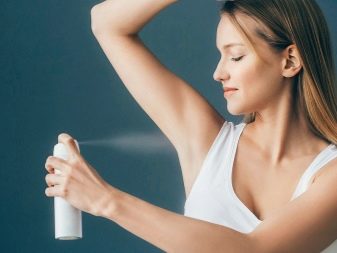
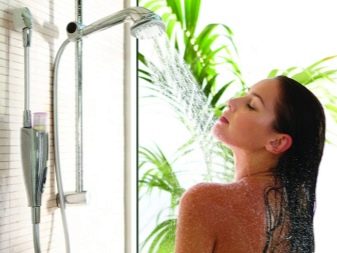
Review overview
The choice of antiperspirants today is huge, you can find many reviews for each of them on the Internet. People share their experience of using a particular remedy, describe its pros and cons, on the basis of which they make their own verdict about the effectiveness and usefulness of a certain "pot blocker". After reading the responses to different drugs, you can decide for yourself which one is worth trying.
For example, Rexona's Gentle & Juicy has received overwhelmingly positive reviews. Users appreciate its pleasant aroma, long duration of action and quite reasonable price. Of the shortcomings, only the fact that you have to wait until the antiperspirant dries is called.
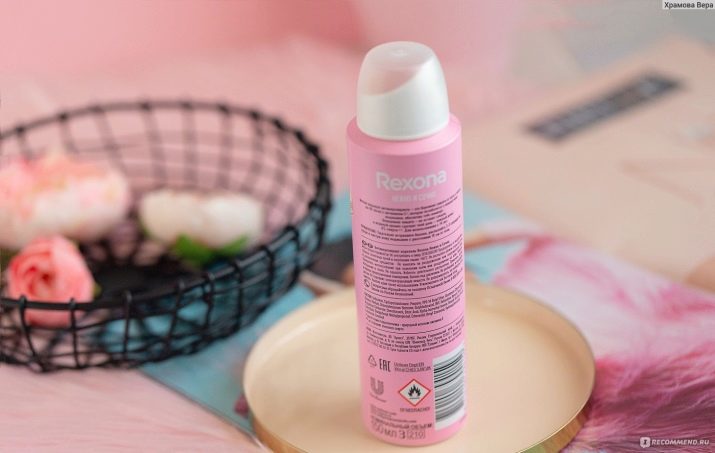
Corbaktol from the German manufacturer Gelinghem works very effectively. But there is a problem that buyers face: this drug is not available everywhere. And its cost is far from being in the budget segment.
Most of us are not ready to abandon the usual and comfortable way to get rid of sweat in favor of folk remedies, which, although safer, are not as effective. This is optional. The main thing is to choose a quality antiperspirant and use it correctly.
For information on how to choose an antiperspirant and use it correctly, see the next video.









You need to choose according to the problem. Someone sweats more, someone does not, someone has sensitive skin, someone does not, someone needs a more deodorizing agent, and someone cannot do without an antiperspirant. I use an antiperspirant myself, it helps to cope with my increased sweating.
It is a pity that some people may have very severe allergies to antiperspirant, but not to a deodorant stick.